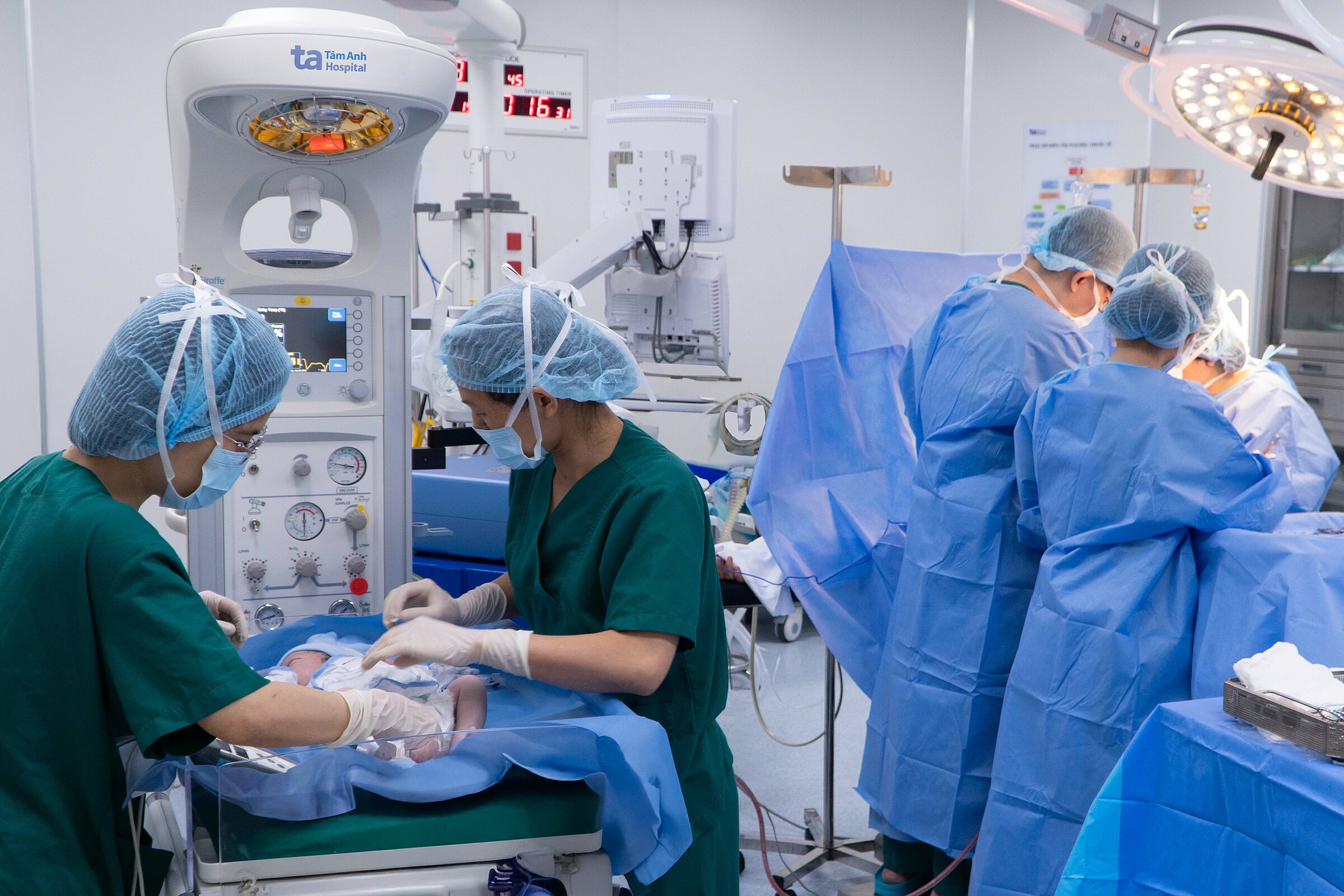A 32-year-old woman, pregnant with her first child conceived through intrauterine insemination (IUI) in October of last year, had an uneventful first trimester and low-risk results from non-invasive prenatal testing (NIPT). At 21 weeks, the fetus showed signs of meconium peritonitis, including excess abdominal fluid, numerous septa and scattered calcifications in the abdomen, and discontinuous bowel walls, according to Dr. Nguyen Thi Mong Nghi of the Fetal Medicine Center at Tam Anh General Hospital in Ho Chi Minh City.
Meconium peritonitis occurs when meconium (a baby's first stool) leaks from the intestines into the abdominal cavity (peritoneum), causing sterile peritonitis. This can be caused by various factors, such as bowel atresia, volvulus, meconium ileus, intestinal ischemia, fetal infection, or genetic mutations associated with cystic fibrosis.
Doctors performed an amniocentesis to determine the cause. Genetic analysis revealed a microduplication on chromosome 2 q12.3-q13. "This is a rare abnormality with no specific statistics in the global medical literature," Dr. Nghi said. Genetic data indicated that the duplicated chromosomal segment contained several genes but did not appear to affect function or manifest in specific phenotypic abnormalities.
To determine whether the duplication was inherited from the parents or a de novo mutation during conception, genetic testing was recommended for the couple, but they declined. The medical team continued to closely monitor the fetus's morphology and growth for appropriate management.
The mother was at high risk for preterm birth due to a sudden decrease in cervical length to 23 mm at 21 weeks, a condition known as a short cervix (cervical length under 25 mm before 24 weeks of gestation). A cervical cerclage was placed to prevent preterm birth. Dr. Nghi conducted weekly ultrasounds, assessing the progression of meconium peritonitis by monitoring the amount of abdominal fluid, bowel distension, abdominal calcifications, and amniotic fluid levels. Fetal growth, signs of fetal hydrops, and all other organs were also monitored for any accompanying abnormalities. A specialized fetal echocardiogram revealed a mild tricuspid valve regurgitation.
According to Dr. Nghi, while meconium peritonitis previously had a high mortality rate, the survival rate is now 80-92% due to early diagnosis, monitoring, and timely intervention. Cases with a good prognosis may not require intervention, while some infants need surgery immediately after birth due to adhesions or bowel obstruction.
In this case, a multidisciplinary team from fetal medicine, obstetrics, and neonatology developed a plan for intervention and treatment at each stage of development to address potential complications. At 38 weeks, doctors determined that prolonging the pregnancy for further fetal growth did not offer significant benefits compared to the potential risks, such as fetal distress and an increased risk of meconium aspiration syndrome (MAS), which can cause serious respiratory complications. The mother underwent a planned cesarean section, delivering a healthy baby boy weighing 3.7 kg. 48 hours after birth, the baby was feeding and passing stool normally, so surgery was not indicated. After 6 days of monitoring with stable vital signs, the baby was discharged with scheduled follow-up appointments.
 |
The surgical team delivers the baby and provides immediate postnatal care. Photo: Tam Anh General Hospital |
The surgical team delivers the baby and provides immediate postnatal care. Photo: Tam Anh General Hospital
Chromosome 2 is a large chromosome containing many genes, and duplications in different segments can have varying effects on individuals. Some people with small duplications on chromosome 2 that do not involve critical genes remain healthy or experience only mild developmental effects.
Dr. Nghi recommends that all pregnant women undergo prenatal screening for fetal abnormalities and genetic disorders. Regular prenatal checkups are essential for early detection of any fetal abnormalities. Depending on the specific case, doctors may intervene to correct some abnormalities in utero or develop a plan for care and monitoring during pregnancy and postnatal treatment to ensure the safety of both mother and baby.
Ngoc Chau
| Readers can submit questions about obstetrics and gynecology here for doctors to answer. |












